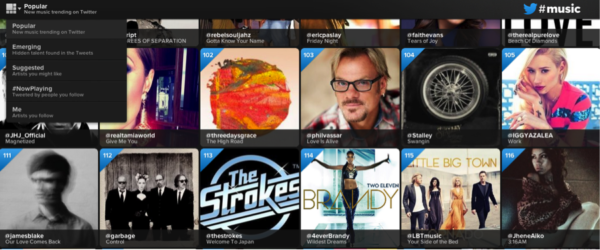Springtime For Twitter: How The Social Media Service Has Blossomed Into A Real-Time Media Giant
I hadn’t seen my old high school pal in about 20 years. As we sat at a bar overlooking Grand Central Station in New York, he told me that he, too, was in social media — something involving sentiment analysis. “Oh, sure,” I said, “many social media tools use sentiment analysis — and it’s always a big […]
I hadn’t seen my old high school pal in about 20 years. As we sat at a bar overlooking Grand Central Station in New York, he told me that he, too, was in social media — something involving sentiment analysis.
“Oh, sure,” I said, “many social media tools use sentiment analysis — and it’s always a big topic at digital marketing conferences.”
“No,” he said, “we analyze Twitter for changes in sentiment that might affect stock price. Then computer trading can kick in for transactions that might only be fractions of a penny per share.”
Twitter As An Economic Predictor
It hit me then that it’s not only marketers that have been paying attention to social media. What my friend and his fellow programmers were doing behind locked doors in Manhattan could be incredibly significant — in a real dollars and cents way. Somehow, the sentiment analysis work of marketing seemed like small stuff by comparison.
We saw those computer trading models in action last month when the Associated Press Twitter account got hacked, and tweets went out that an explosion at the White House had injured President Obama. For all of a few minutes, the market plummeted 130 Billion dollars in value!
Twitter’s vulnerabilities and security have been criticized, and if nothing else, the incident has shone a spotlight on the need for Twitter to button up. Given the clear economic consequences of Twitter activity in today’s world, large brands would do well to provide periodic training to anyone who has access to your Twitter credentials — particularly on the dangers of pfishing — and to ensure that passwords have complexity (a mix of letters, numbers, and symbols).
Also, it might be a good idea to preclude employees from being logged into the organization’s account on their smart phones — objects that are too easily left behind at a restaurant or bar.
Twitter As An Entertainment Empire
Twitter #music was announced last month, which the company describes as “a new service that will change the way people find music, based on Twitter.”
Of course, Twitter isn’t the first social media platform in which its engineers are playing out the notion that the stuff you expose in your social stream could indicate your tastes, allowing for content to be served up that meshes with your innermost desires.
No matter how many mentions I made of Charles Mingus, Dave Brubeck, or Charlie Parker, though, the service still gave me the latest in trendy pop music. Seeing that the service is brand new, it isn’t difficult to see how users could benefit from social media-induced suggestions. Still, I’ll patiently await a richer experience. Give it a spin for yourself.
In other news, Twitter announced that it’s in talks with NBC and Viacom regarding potential partnerships to distribute online TV.
Twitter As The New Borscht Belt
In yet another interesting play, Comedy Central hosted its first ever all-Twitter comedy festival, using the hashtag #comedyFest. As Jason Zinoman of the New York Times recently wrote, “Twitter is a relatively new medium, but its popularity among comedians has inspired a return to an old style: economical one-liners. Think of Twitter as the new borscht belt.”
I heard a similar sentiment from Chris Brogan on a recent #tmmTV SoMe Awards Google Plus hangout: “I’m watching some great comedy on Vine.” He then chided the world of marketing, suggesting that they aren’t as up-to-speed as comedians. “[The marketers] have Vines of their dogs taking a poop.”
Zinoman wrote, “… if the popularity of tweeting is any indication, comedians will take the lead in exploring the limits of Vine as artistic expression.”
So, if you catch me in my office watching some comedy clips, please remember: it’s homework for the job. And, I will not be sharing any videos of dogs.
Economics, Music, Television & Comedy — What Does It All Mean?
Is the pattern apparent? Twitter has clearly grown into a force to be reckoned with, not merely as a way for individuals to connect with one another, but as a means for economists to predict stock movements, companies to expose users to new music and movies, and comedians to express themselves in creative new ways. With each of these news items that come across our desk, we might very well ask ourselves, “What’s the importance of this in regard to marketing?”
Combined with the preponderance of Super Bowl 2013 ads using hashtags, all signs point toward a growing adoption of Twitter by both users and the mainstream media.
Buried within all of social media are design patterns, each lending themselves to different behaviors. As seen in how Twitter is the place where news breaks, Twitter is the epitome of real time media. Where else in social media can you break news — and then comment on it — with the efficacy of Twitter?
I’m not sure that the small group of people that gathered around the whiteboard to invent Twitter necessarily understood that they were designing real time media. The forced brevity along with the way people can make connections outside of their immediate networks is perhaps accidental magic. But, it’s still magic.
Opinions expressed in this article are those of the guest author and not necessarily MarTech. Staff authors are listed here.
Related stories
New on MarTech

